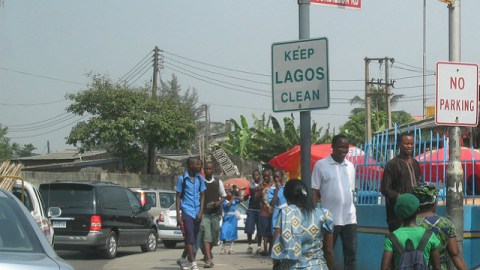The Africa That’s Not in the News

For those of us who were living in New York City on 9/11/2001, it felt like a matter of minutes between the attacks and the CNN-style branding of the event and all discourse around it. Before we had time to gather our thoughts, or, for that matter, to allow them to drift like the strange flurries of ash that fell across the city as far from ground zero as my Kensington, Brooklyn apartment, there were anthems, bumper stickers, and other ready-made expressions of sorrow and righteous indignation summing up our collective experience. The hijackers were ‘cowards.’ The towers were ‘gone, but not forgotten.’
Teju Cole and Literature as Breathing Space
Teju Cole, the Nigerian-born author of Open City, was living in Brooklyn, too, at the time. Among other things, his first novel is an attempt to make space for that private, more complex experience of post-9/11 New York that was drowned out by the flags, the bumper stickers, and the media.
I heard Cole speak two weeks ago at the Brooklyn Academy of Music, which hosted him as part of its Eat, Drink, and Be Literaryseries. After reading from Open City, the author spoke for a while with writer Francine Prose, then answered audience questions. One theme that consistently emerged was Cole’s interest in creating space, through literature, for those bits of real, complex experience that can find their expression nowhere else.
Writing the Africa that’s Not in the News
Having created literary space for post 9/11 New York, Cole is now working on doing the same thing for his hometown of Lagos, Nigeria. “It’s difficult to give people a sense of the real, modern lives of Africans,” he said at BAM, “Many people only see Kony 2012.”
Cole’s “small fates” on twitter are 140-character, darkly ironic, Zen koan-like news items (based on current events in Lagos) that attempt to communicate the complex reality of people’s lives in modern Africa. A recent one read:
@tejucole, Aug. 19: The Nigerian police motto is “the police is your friend,” but Taiwo, 25, beaten in Alapere for not paying a bribe, has his doubts.
Cole based this perfectly tweetable form on an early 20th century news feature, the fait divers, perfected by French journalist Félix Fénéon. Encountering one of these tweets amid a stream of links to cool YouTube videos and snarky comments about Mitt Romney’s hair is an invigorating, time-stopping shock to the system, like jumping out of a sauna into an ice-cold lake.
The author is at work now on a nonfiction account of modern-day Lagos, based in part on extensive interviews with its residents. Like small fates, their stories are sometimes painful. Cole responds to critics who want him to paint a more positive picture of Africa, leaving out the gory bits that they fear will add to the negative stereotypes.
“My account of Lagos has to include the insanity – no there aren’t roving bands of warlords abducting us, but it’s a crazy place to live, and in very modern ways.”
It’s Sometimes Necessary to Make Time Stop
To explain the strange power of literature to create the space we need to put our lives into perspective, Cole cited a Seamus Heaney essay about the New Testament book of John. Apparently before coming up with “let he who is without sin cast the first stone” – Jesus’ response to the demand that he comment on a sentence of death, passed on an adulteress in accordance with Old Testament law – he is depicted as drawing something silently with his finger in the sand. Here’s how Heaney interprets this:
The drawing of those characters [in the sand] is like poetry, a break with the usual life but not an absconding from it. Poetry, like the writing, is arbitrary and marks time in every possible sense of that phrase. It does not say to the accusing crowd or to the helpless accused, “Now a solution will take place,” it does not propose to be instrumental or effective. Instead, in the rift between what is going to happen and whatever we would wish to happen, poetry holds attention for a space, functions not as distraction but as pure concentration, a focus where our power to concentrate is concentrated back on ourselves.
Follow Jason Gots (@jgots) on Twitter





